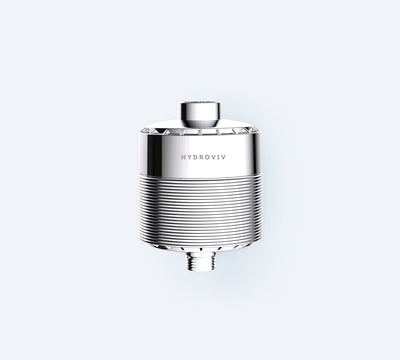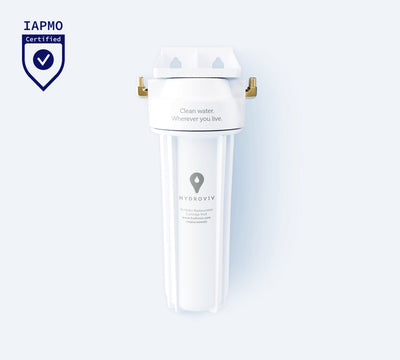Problems We Found In Fort Worth's Tap Water
RSSKezia Snipe | Research Analyst
Updated June 25, 2021 to include updated data
For Hydroviv’s assessment of Fort Worth's drinking water, we aggregated water quality test data from City of Fort Worth Water Department, the city’s water provider and the U.S. Environmental Protection Agency (EPA), as well as from samples that we collect and analyze. We cross reference these data with toxicity studies in the scientific and medical literature, and delve into upcoming regulatory changes. The water filters that we offer our users in Forth Worth are optimized with these figures in mind.
Source Of Fort Worth Drinking Water
Fort Worth uses surface water from Lake Worth, Eagle Mountain Lake, Lake Bridgeport, Richland Chambers Reservoir, Cedar Creek Lake, Lake Benbrook and the Clear Fork Trinity River. Fort Worth owns Lake Worth.
Arsenic In Fort Worth Drinking Water
Arsenic is a toxic metal that is known to cause cancer and other health issues. Unlike lead, which leaches into water from plumbing, arsenic comes from the source water itself. Fort Worth's water quality is in compliance with the EPA’s loose water quality standards but it is very important to point out that EPA’s standard balances the toxicity against the costs of removing arsenic from drinking water at the municipal level. The most recent Fort Worth water quality report reported an arsenic concentration up to 1.5 parts per billion for the city. Hydroviv recommends that anyone with more than 1 part per billion take steps to remove arsenic from their water, especially if children are in the home.
Lead In Fort Worth Drinking Water
Lead enters tap water through older lead service pipes and lead-containing plumbing. When corrosion control measures put in place by the municipality fail (like what recently happened in Flint, Michigan), lead leaches into the drinking water, and can reach dangerous levels. Currently, 10% of Ft. Worth water samples analyzed for lead revealed concentrations of 7.7 parts per billion. Though Fort Worth's water quality is in compliance with federal regulations, EPA and CDC both acknowledge that there is no safe level of lead, and federal regulations do not take into account levels measured at an individual tap.
Chromium 6 In Fort Worth Drinking Water
Chromium 6 (also known as hexavalent chromium) is a highly toxic metal that is not regulated by the EPA. In recent years, Fort Worth’s drinking water has averaged 54 parts per trillion for Chromium 6. For a bit of perspective, these levels are 2.7 times higher than the concentration determined to have negligible impact on cancer risk.
Disinfection Byproducts (DBPs) In Fort Worth Drinking Water
DBPs are a category of emerging contaminants that form when chlorine-based disinfectants react with naturally-occurring organic matter. Although these chemicals are not currently regulated very well, the EPA website discusses the association between high levels of disinfection byproducts and an increased risk of bladder cancer, as well as kidney, liver, and central nervous system problems.
Chloramine Used To Disinfect Fort Worth Drinking Water
While most cities use chlorine as the primary disinfectant, Ft. Worth's water is disinfected with chloramine (produced by mixing chlorine and ammonia). Chloramine is primarily responsible for what many customers report as the “bad taste” of tap water, and unlike chlorine does not dissipate if a container of water is left in the refrigerator overnight. Most one-size-fits-all water filters use filtration media that doesn’t do a great job removing chloramine, but the filters that we design and build at Hydroviv for Fort Worth uses special filtration media that is purposefully designed to remove chloramine as well.
Still Have Questions About Fort Worth Tap Water?
Hydroviv is a water filtration company that uses water quality data to optimize water filters for each customer's water. The contaminants that we list above are what we consider to be major “points of emphasis” that we use to build water filters that are built specifically for Fort Worth, but our filters provide broad protection against a wide range of contaminants.
If you’re interested in learning more about water filters that have been optimized for Fort Worth tap water, or just have questions about water quality in general, feel free to visit www.hydroviv.com, reach out by email (hello@hydroviv.com) or through our live chat. We also frequently post water-related news on Twitter or Facebook. We pride ourselves in being a reputable source of information on water quality, and your questions will be answered by scientists, not salespeople (we don't have any salespeople).
Please Share This Fort Worth Water Quality Article On Social Media With Anyone You Think Would Benefit From The Information!
Recommended Articles For You
What Am I Supposed To Do If I Have Arsenic In My Tap Water?
How Do I Remove Chromium 6 From My Tap Water?
What Are The Common Problems With Reverse Osmosis Filters?




